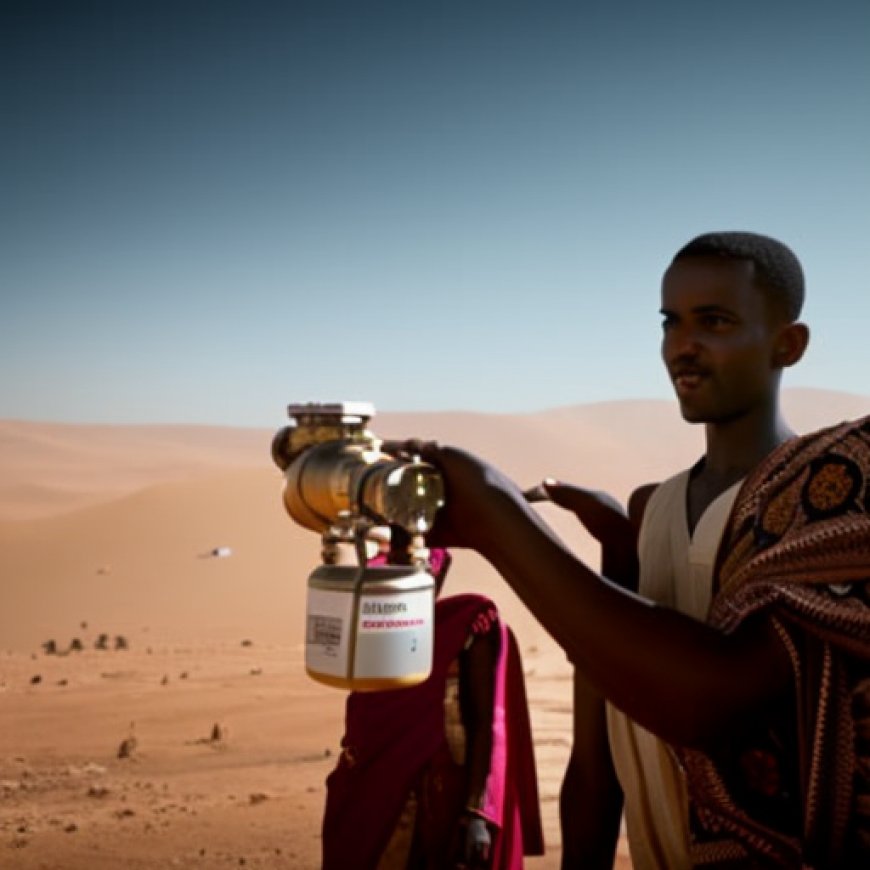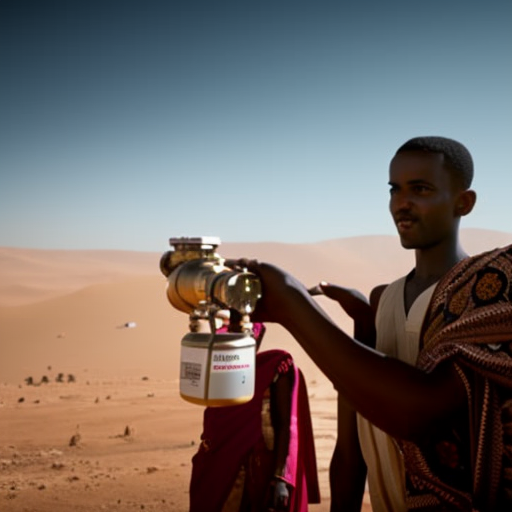UAE initiative boosts access to clean water for 9,000 in Ethiopia
UAE initiative boosts access to clean water for 9,000 in Ethiopia The National


:quality(70)/cloudfront-eu-central-1.images.arcpublishing.com/thenational/VAREWVF3BCI7JC6DL7LJCQQL4I.jpg)
A UAE Initiative Improves Access to Safe Drinking Water in Ethiopia
A major UAE initiative has been praised for improving lives after boosting access to safe drinking water for 9,000 people in Ethiopia.
Beyond2020, a humanitarian drive supported by local and international organisations, installed six shallow wells with solar pumps to serve three needy villages in the Dirashe district of the African country.
The assistance aims to reduce incidents of waterborne disease and enhance overall health.
The Beyond2020 scheme was launched by the UAE’s Zayed Sustainability Prize to provide sustainable solutions for urgent challenges faced by vulnerable communities around the world.
The campaign in Ethiopia is being led by Solarkiosk Solutions in Germany, a Zayed Sustainability Prize finalist that provides rural, off-grid communities with electricity and has benefitted five million people to date.
Dr Sultan Al Jaber, Cop28 President-designate and Minister of Industry and Advanced Technology, underlined the importance of ensuring access to clean drinking water for all.
“As we continue to push towards a more sustainable and equitable world, access to safe water remains a fundamental human right,” he said.
“Beyond2020 and its partners are delighted to have been able to improve the livelihoods of three communities in Ethiopia by providing them with access to this essential resource.
“As the UAE prepares to host Cop28 – a Cop aimed at accelerating inclusive sustainable development, particularly in the Global South – this deployment in Ethiopia is a perfect example of how we can create meaningful change and address the urgent issues posed by climate change when we come together.
“We must continue acting in solidarity as we strive towards a future where safe water is accessible to all.”
Helping Farmers to Thrive
The people of Dirashe are primarily farmers who operate in the villages of Walessa, Holte, and Gato, lowland areas where drinking water is scarce.
A growing population, demand for irrigation, and the challenges of climate change – which is causing increasing levels of algae in local rivers and making water undrinkable – are putting increasing pressure on limited resources.
Villagers were forced to turn to surface water collected from rain and nearby open rivers to meet their needs, putting their health at risk.
To address the water shortage, several shallow hand-pump wells were drilled in the villages in 2014. Due to the mechanical operation of the hand pumps, however, the pumps were maintenance intensive, and the wells frequently became inoperable.
Those wells have been retrofitted with solar pumps, with each well supplying 20,000 to 25,000 litres of clean drinking water every day, which is enough to meet the village’s drinking, sanitation, and agricultural needs.








